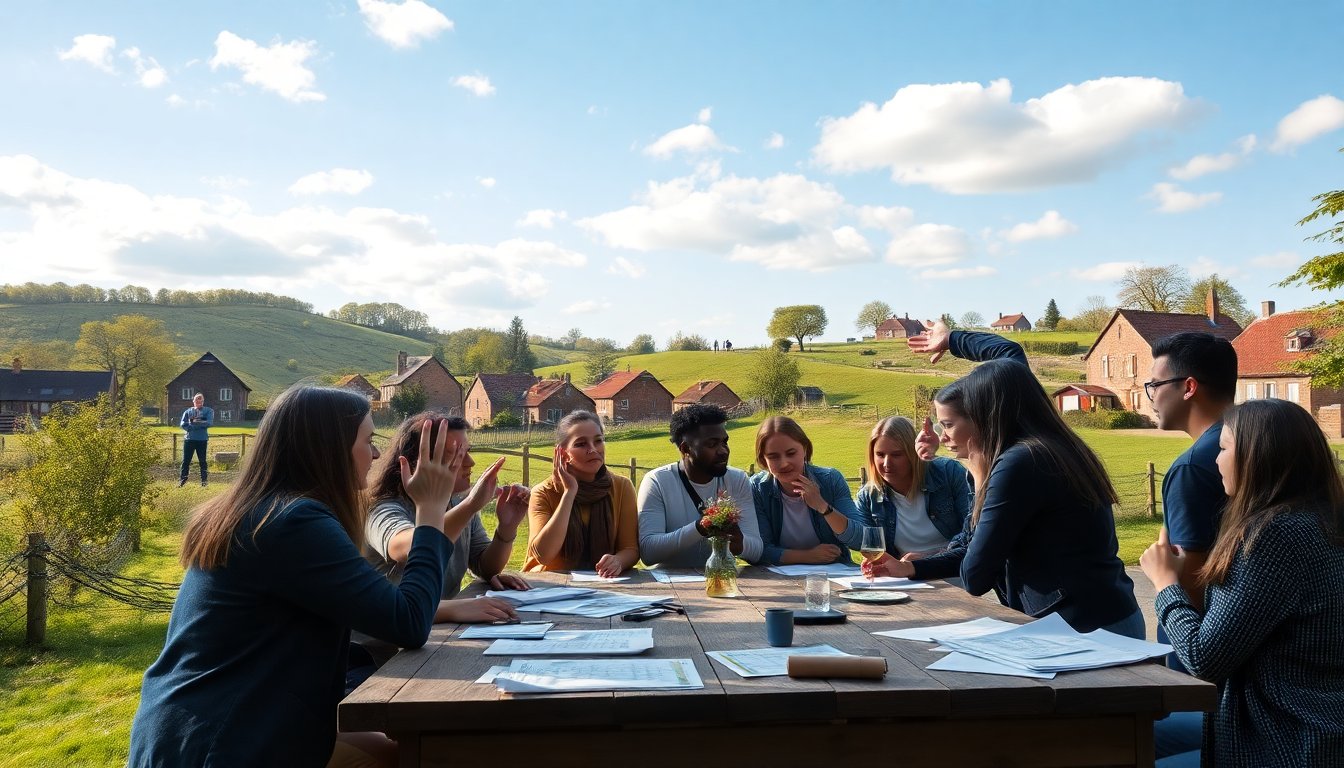Table of Contents
The state of democracy worldwide has faced numerous challenges, but a small region in Belgium has taken an innovative approach to revive public trust. In Ostbelgien, local officials have decided to involve ordinary citizens in the policy-making process, creating a model that encourages participation and reignites faith in government efficacy.
This initiative has sparked interest beyond its borders, raising questions about the potential for citizen-driven governance in other regions. By recruiting everyday individuals to help formulate policies, Ostbelgien sets a precedent for democratic engagement that could serve as a blueprint for revitalizing democracy in various contexts.
Empowering citizens for a better tomorrow
The core of the Ostbelgien model lies in its commitment to citizen empowerment. Unlike traditional top-down approaches, this initiative embraces the idea that those affected by policies should have a say in their creation. This approach democratizes governance and fosters a sense of community and shared responsibility.
Participants in the program report a renewed sense of trust in government as they see their input valued and considered in key decisions. This collaborative effort allows diverse perspectives to be heard, ultimately leading to more comprehensive and effective policies that reflect the needs and desires of the community.
Building trust through transparency
One of the critical components of this initiative is the emphasis on transparency. By openly sharing information about policy discussions and decisions, local leaders cultivate an environment where citizens feel informed and involved. This transparency enhances accountability and encourages more individuals to participate in the democratic process.
Furthermore, the program has established regular forums and workshops where citizens can voice their concerns and ideas. This open dialogue has proven essential in bridging the gap between the government and the public, leading to a more engaged and informed citizenry.
The ripple effect of citizen engagement
As the model gains traction, its impact is felt beyond Ostbelgien. Other regions in Belgium and even abroad are taking note of this successful approach to democracy. The program serves as a testament to the potential for local governance to be reimagined through the active involvement of citizens.
Moreover, the Ostbelgien initiative highlights the importance of nurturing a politically active culture. By encouraging citizens to participate in policy-making, communities can cultivate a sense of ownership over their governance. This involvement can lead to higher voter turnout and greater civic engagement in the long run.
Challenges and opportunities ahead
Despite its success, the path forward is not without challenges. Ensuring sustained engagement from participants can be difficult, especially as initial enthusiasm may wane over time. However, ongoing commitment to education and outreach can help maintain momentum and encourage more citizens to take part.
Additionally, as the program expands, it will be crucial to address potential disparities in participation. Ensuring that all voices—especially those from marginalized communities—are heard will be essential for creating truly representative policies. By actively seeking out diverse perspectives, Ostbelgien can continue to strengthen its democratic processes.
A hopeful model for the future
This initiative has sparked interest beyond its borders, raising questions about the potential for citizen-driven governance in other regions. By recruiting everyday individuals to help formulate policies, Ostbelgien sets a precedent for democratic engagement that could serve as a blueprint for revitalizing democracy in various contexts.0
This initiative has sparked interest beyond its borders, raising questions about the potential for citizen-driven governance in other regions. By recruiting everyday individuals to help formulate policies, Ostbelgien sets a precedent for democratic engagement that could serve as a blueprint for revitalizing democracy in various contexts.1


